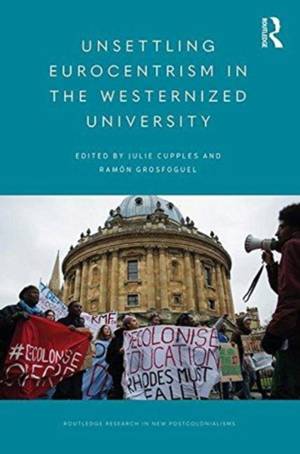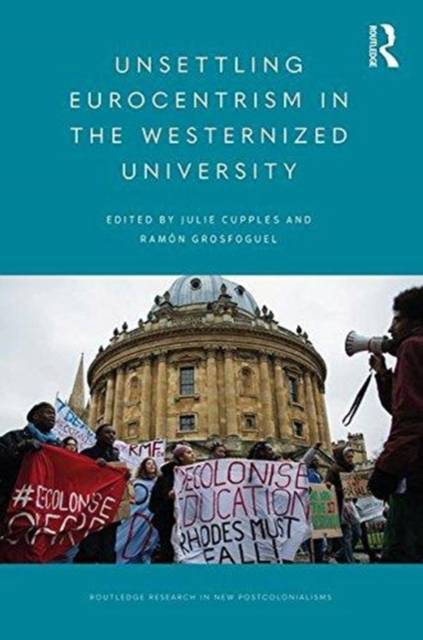
- Retrait gratuit dans votre magasin Club
- 7.000.000 titres dans notre catalogue
- Payer en toute sécurité
- Toujours un magasin près de chez vous
- Retrait gratuit dans votre magasin Club
- 7.000.0000 titres dans notre catalogue
- Payer en toute sécurité
- Toujours un magasin près de chez vous
Unsettling Eurocentrism in the Westernized University
Description
The westernized university is a site where the production of knowledge is embedded in Eurocentric epistemologies that are posited as objective, disembodied and universal and in which non-Eurocentric knowledges, such as black and indigenous ones, are largely marginalized or dismissed. Consequently, it is an institution that produces racism, sexism and epistemic violence. While this is increasingly being challenged by student activists and some faculty, the westernized university continues to engage in diversity and internationalization initiatives that reproduce structural disadvantages and to work within neoliberal agendas that are incompatible with decolonization.
This book draws on decolonial theory to explore the ways in which Eurocentrism in the westernized university is both reproduced and unsettled. It outlines some of the challenges that accompany the decolonization of teaching, learning, research and policy, as well as providing examples of successful decolonial moments and processes. It draws on examples from universities in Europe, New Zealand and the Americas.
This book represents a highly timely contribution from both early career and established thinkers in the field. Its themes will be of interest to student activists and to academics and scholars who are seeking to decolonize their research and teaching. It constitutes a decolonizing intervention into the crisis in which the westernized university finds itself.
Spécifications
Parties prenantes
- Editeur:
Contenu
- Nombre de pages :
- 284
- Langue:
- Anglais
- Collection :
Caractéristiques
- EAN:
- 9781138061798
- Date de parution :
- 01-08-18
- Format:
- Livre relié
- Format numérique:
- Genaaid
- Dimensions :
- 156 mm x 234 mm
- Poids :
- 594 g

Les avis
Nous publions uniquement les avis qui respectent les conditions requises. Consultez nos conditions pour les avis.





